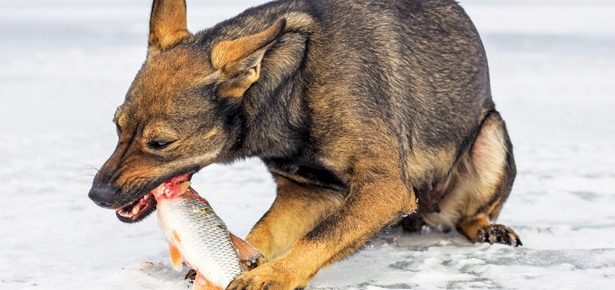
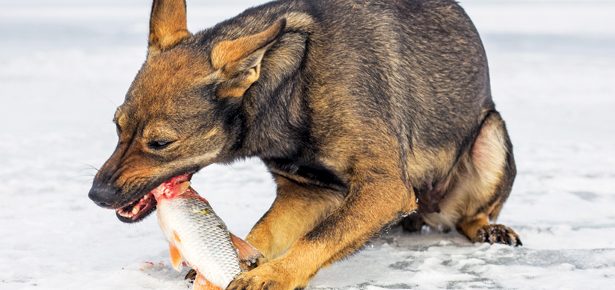
Wildly Sustainable
Concerned with conservation, a biotechnologist creates sustainably sourced Omega-3 powerhouse supplements you can feel great about giving your dog.
When Harald Fisker, a Danish-born biotechnologist, was travelling in Alaska in the late nineties for his career in fish processing, he kept hearing stories that disturbed him. Large boats moving through northern waters were not able to get out of harbour because of the large piles of fish waste. Harald had encountered a similar problem when he worked in Norway: the body of the fish was processed but the rest of it—the head, tail, and frame—was discharged into the sea.
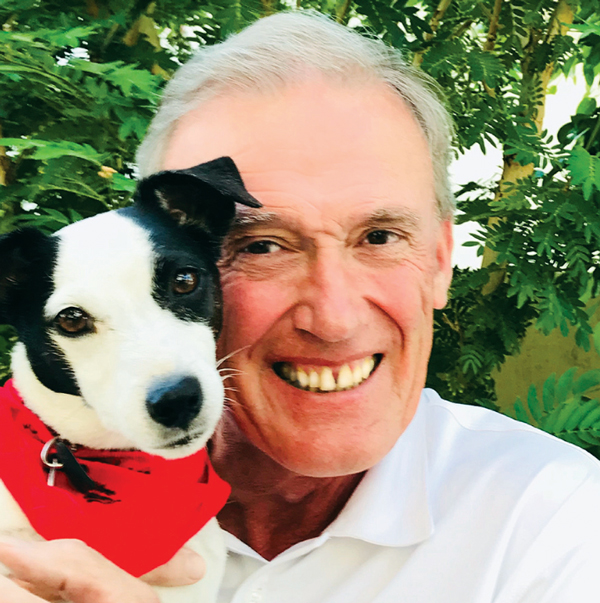
Seeing an opportunity to make the fish processing industry more sustainable and help the environment at the same time, Harald left the corporate world where he had worked for several decades and started his own business, Grizzly Pet Products, a company that takes surplus, human-grade fish parts and transforms them into high quality supplements for dogs and cats. “Dogs, especially large dogs, have always been close to my heart,” says Harald, adding, “I love shepherds; I grew up with them.”
Wanting to make the highest quality products possible, Harald even designed and built his own plants in Alaska. There, he extracts oil and meal from human quality fish products. The oil and meal is then packaged in his own facilities in Washington state. “It is important to me that I know from source to customer what we are doing,” he explains.
One of the cornerstone products for Grizzly Pet Products—named for the massive bear that thrives on wild salmon—is their Wild Alaskan Salmon Oil. It is rich in omega-3 fatty acids such as EPA and DHA, which play a vital role in pet health. Aside from producing a healthy skin and coat, fatty acids support cardiovascular, immune, and cognitive functions. Fish oils are an excellent source of omega-3 fatty acids for pets because they are readily absorbed. Fatty acids found in plant sources such as flax seed must be converted by the pet’s metabolism before they can be taken up, and a significant amount of nutrients are lost in the process.
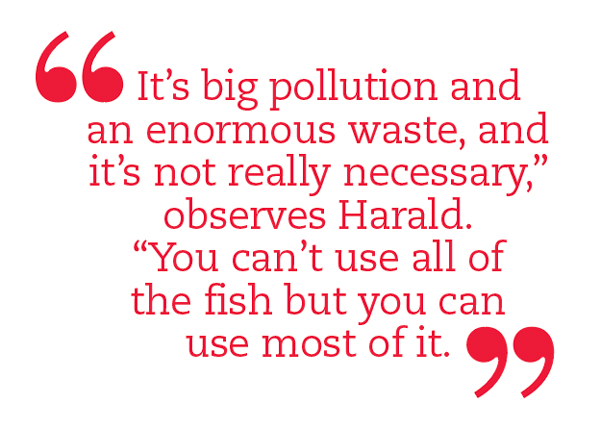
In addition to Wild Salmon Oil, Harald produces the more economical Wild Pollock Oil. “It’s a very good alternative if you want to supplement your pet’s food with something that will keep the coat nice, and away from dryness and itchiness,” he comments, “but it is not quite as high in the omega-3 profile as the salmon oil.” Harald says it is also beneficial to alternate the two products.
While the biotechnologist sources his wild salmon and pollock from Alaska, he gets another of his key ingredients—krill—from Antarctica. For several years, Harald had heard about the powerful antioxidant properties of Antarctic krill but was reluctant to use it because he knew the tiny crustacean was a primary food source for many large Antarctic animals such as whales, seals, birds, and fish.
He consulted the major companies that harvest krill in Antarctica and discovered that they adhered to standards set forth by internationally recognized groups such as the World Wildlife Fund (WWF) and the Commission for the Conservation of Antarctic Marine Living Resources (CCAMLR). The latter limits the amount of krill being caught to protect all aspects of the Antarctic ecosystem.
“The biomass in the Antarctic is enormous, and it is just a tiny fraction that is being caught,” explains Harald, adding, “They are taking less than one percent of the re-growth of krill per year.”
When he was certain the harvesting of Antarctic krill was sustainable, the biotechnologist incorporated it into two of his products, Grizzly Krill Oil and Grizzly Joint Aid. Wild krill contains a substance called Astaxanthin, which produces the arthropod’s deep red colour. Astaxanthin is a powerful antioxidant that fights free radicals detrimental to pet health. Harald notes his krill oil for pets contains a high amount of this potent antioxidant, up to eight times more than that found in krill oil supplements for people.
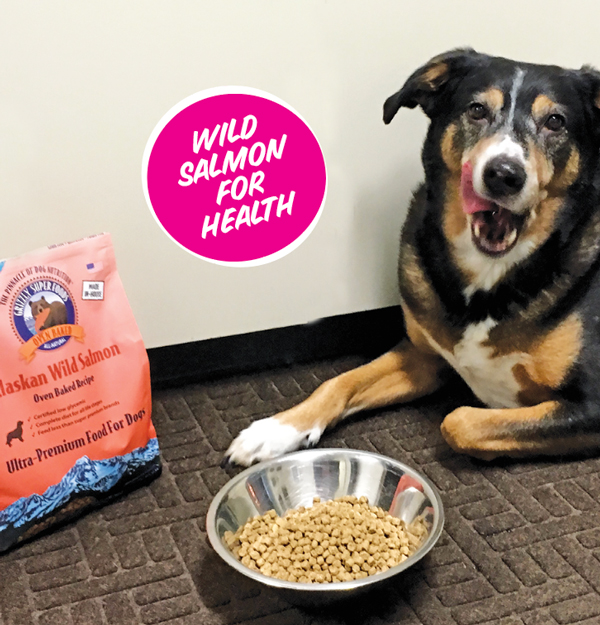
Recently, Harald has diversified and added a “super food” to his line of high-quality supplements. The first and primary ingredient of the pet food is, not surprisingly, wild Alaskan salmon. Harald feels proud to be putting this precious resource, previously being wasted, to good use. Looking back on his early days in the fish processing industry, the biotechnologist says that perhaps 60 percent of the fish
was used.
“Maybe we are going closer to using 89 percent all the time,” Harald reflects, adding, “That feels good.”
Join the newsletter and never miss out on dog content again!
"*" indicates required fields
By clicking the arrow, you agree to our web Terms of Use and Privacy & Cookie Policy. Easy unsubscribe links are provided in every email.